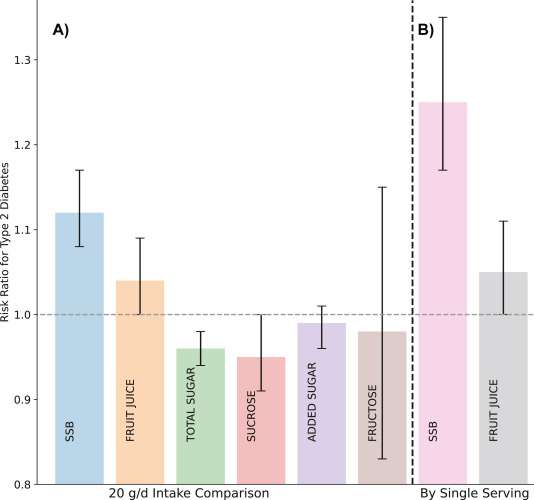PROVO — A new study out of Brigham Young University finds sugar consumption through beverages increases the risk of Type 2 diabetes, while moderate amounts of other dietary sugars had no association with Type 2 diabetes or even lowered risk.
These findings prove that the impact of sugar in the body depends not only on the amount, but also on how it is delivered, according to Karen Della Corte, assistant professor of nutritional science at BYU and lead author of the study. She explained that the study shows the association between sugar intake and health is not as simple as commonly believed.
“Sugar has become a kind of nutritional villain, and there’s a lot of public confusion surrounding sugar in the diet,” said Della Corte. “The basic assumption is that sugar is bad for you … but the truth is more nuanced than that.”
Survey findings
Researchers from BYU, in collaboration with researchers at two German universities, conducted a comprehensive meta-analysis to demonstrate the dose-response relationship between dietary sugar intake and the risk of Type 2 diabetes. The study is one of the largest meta-analyses of its kind, according to BYU, and is the first to establish that dose-response relationship and challenge the assumption that all sugars equally elevate diabetes risk.
They found that with each additional serving of a sugar-sweetened beverage per day — such as nondiet soda, energy drinks or any beverage with added sugar — there was a 25% increase in the risk of developing Type 2 diabetes. When compared to other methods of consuming the same amount of sugar, sugar-sweetened beverages were associated with the greatest risk. Researchers also found that each additional serving of fruit juice per day increased the risk of developing Type 2 diabetes by 5%.
“Sugary drinks deliver large amounts of sugar quickly in isolated doses, without any of the components that normally slow down digestion, like fiber, protein or fat,” explained Della Corte. “So when sugar is dissolved in liquid, it floods the system fast, and this rapid delivery can overwhelm the body’s ability to process it in a healthy way.”
Other sources of sugar consumption observed in the meta-analysis were shown to either have no significant association or were associated with a “significant reduction” in Type 2 diabetes risk, according to the study results.
